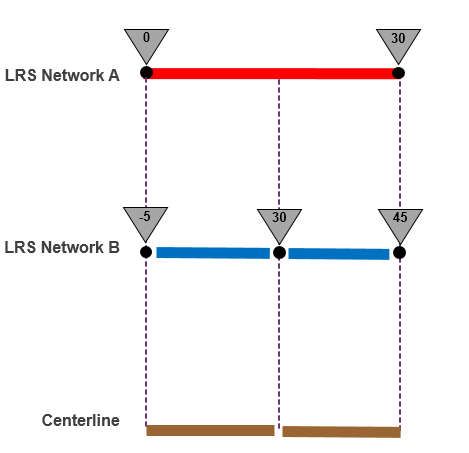The managing of historical records of pipelines comes with complexity, as the pipeline industry faces a challenge to design an effective way to represent pipelines and their assets using multiple measurement systems (for example, engineering stationing, continuous measures, and mileposts).
ArcGIS Pipeline Referencing simplifies the management of multiple measurement systems by allowing you to create multiple networks in a single linear referencing system (LRS). The foundation of an LRS has the centerline of a pipeline as its core, and networks (a collection of routes) are built using the geometry of the centerline and by applying a linear measurement system to it. Each of these networks can have a different unit of measure. Events are registered with the network to describe the assets.

Each individual business unit (engineering, survey, operation, and maintenance) may have its own network that depicts how its pipelines are subdivided and measured. Similarly, event data may also be collected against multiple networks. For event data to be useful, it must be possible to perform transformations among all the measuring systems. By having an LRS that supports multiple referencing systems, the transformations, reporting, and analyzing capabilities for your pipeline and assets will improve, supporting the decision-making process.